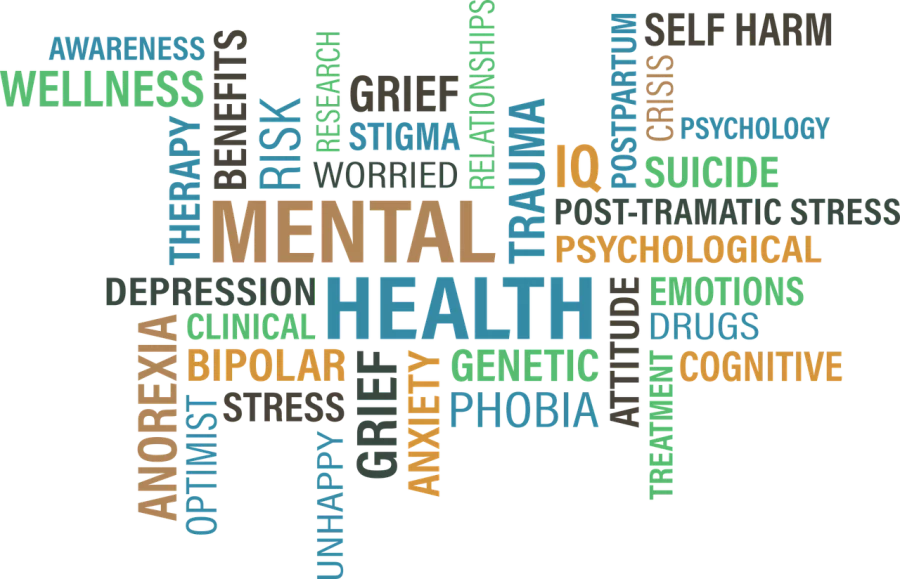Other states offer mental health days to students. New Jersey however, does not. With there being 61.4% of New Jersey residents ages 12-17 who have depression did not receive any car in the last year. We say we care about the mental wellness of students, but do we?
“If a child had to miss school to undergo cancer treatment or open-heart surgery, their absence from school wouldn’t be excused on the state level,” according to NJ101.5’s. The article goes on to say that New Jersey is considering giving students mental health days. Bills have been proposed to add these days, however, some lawmakers and critics are concerned it will only increase absenteeism.
“My concern is, carving out specific mental health days will only increase absenteeism, which has risen significantly following the pandemic,” Melanie Schulz, of the New Jersey Association of School Administrators, told lawmakers. “Additionally … giving students more time out of school could worsen the problem.”
Two bills have been proposed by New Jersey lawmakers supporting days off for mental wellness. Bill S2151 sponsored by state Sens. Richard Codey, D-Essex, and Joseph Cryan, D-Union, would grant each public school student with five absences for mental or behavioral health reasons. These days would be considered as “state-recognized excused absences. Currently, the only days recognized by the state as excused days of absence are religious holidays, take your child to work day, and college visits.
Mental Health Day
As reported in the Washington Post , the 12 states that allow mental health days for students in schools is Washington, California, Illinois, Maine, Virginia, Colorado, Oregon, Connecticut, Arizona, Nevada, Utah and Kentucky. Noted by The National Alliance On Mental Illnesses (NAMI) “one in six youth have a mental health conditions like anxiety and depression but only half receive any mental health services.”
According to Mrs. Dinicola, a guidance counselor at Colonia High School said, “Everyone needs mental health days, young and old.” She also added that “by calling them mental health days, it might encourage students who are afraid to actually take the day off to stay home. These students feel they might fail if they miss schoolwork when in fact they are the ones in need of a mental break.”
Mrs. Abrams, mother and teacher of Colonia High School said, “I think there are stresses that people don’t understand that kids actually go through. In a given day you are expected to learn from 8 to 3. On the weekends, that structure doesn’t exist, however there are other pressures that exist on the weekends like chores and family functions. There are times when you need to take a break, turning your brain off and watch a movie or go to one of those painting places where your using other muscles other than your brain. If we, as adults, want our children to have coping mechanism, we have to teach them what positives coping mechanism look like.”
Conversely, Ms. Jackie Giordano, Student Assistance Counselor at Colonia High, feels that any of the eight unexcused absences in a semester that students receive by the district before losing credit can be used as a day for mental wellness.
Mental Health Facilities
New Jersey has a diverse population, with more than 9 million people living in the state. The state is home to numerous mental health facilities, including hospitals, outpatient clinics, and community emotional wellbeing centers.
These facilities provide a wide range of services to individuals with mental health conditions, including counseling, medication management, and support groups.
One of the most significant challenges facing individuals with mental health conditions in New Jersey is access to care. Many people in the state have limited access to mental health services, particularly those living in rural areas. To address this issue, the state has implemented various initiatives to expand mental health services and increase access to care.
One such initiative is the New Jersey Mental Health Telemedicine Act, which was signed into law in 2017. This law requires insurance providers to cover mental health services provided through telemedicine. This makes it easier for individuals in remote areas to access care. Additionally, the state has established a mental health hotline, NJMentalHealthCares, which provides free, confidential support and resources to individuals struggling with physiological wellbeing issues.
Treatments For Mental Issues
For people between the ages of 15-40 years experiencing symptoms of psychosis, there is an average delay of 74 weeks (nearly 1.5 years) before getting treatment. if there are 1,112,000 adults in New Jersey that have mental health conditions, how many kids do you think have the same illnesses?
New Jersey has also taken steps to address the stigma surrounding mental health. In 2020, the state launched a public awareness campaign called “NJMentalHealthCares,” aimed at reducing the stigma surrounding mental health and promoting access to care. Mental health days would only show New Jersey’s youth that adults care about them.













Ms. Giordano • Apr 4, 2023 at 4:52 pm
Excellent article & topic Miss G
Miss G